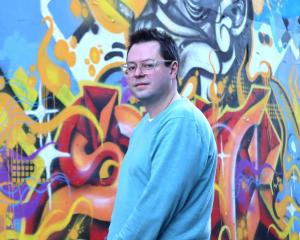
The pending move of social services from the Dunedin Community House in Moray Pl to new premises at Evan Parry House prompted the organisation to take stock of its needs.
Brain Injury Association Otago manager Jane Butterfield said an opportunity to move into a newly renovated space above the Livingwell Disability Resource Centre in George St was appealing because an accessible lift had been installed, additional office space was available and there was also access to a meeting room.
The organisation is busy at present with Brain Injury Awareness Month.
Liaison officers Sue Whyte and Cathy Mathews have been visiting a number of locations in the Otago region to talk about managing brain injury.
Mrs Mathews said the talks were for the general public, providing information in lay terms.
"We present a little bit about brain injuries, what are the causes and effects and then we talk about everyday strategies that they can use."
They also provided guidance about the ACC process, which could "bog some people down".
"We deal with people whether they have had a brain injury through an accident or whether it is a medical event."
Brain injuries could have a long journey of recovery, from mild concussion to severe, persistent vegetative states, Mrs Mathews said.
The mere process of trying to phone an 0800 number could be difficult for someone with a brain injury.
"Your head is pounding, your tolerance is down, and then somebody says something, and you don’t understand what they mean, because your processing is not quite right."
Ms Butterfield said the organisation would take part in Brain Day at Tūhura Otago Museum next Saturday from 11am-3pm.
Activities including a walk through the Brain Health Research Centre’s giant 3D inflatable brain will educate and entertain. Goggles that simulate what it is like to have a concussion, as well as what it is like to drink and drive, will provide some insight into the challenges of brain injuries.
Visit braininjuryotago.org.nz for more information.














